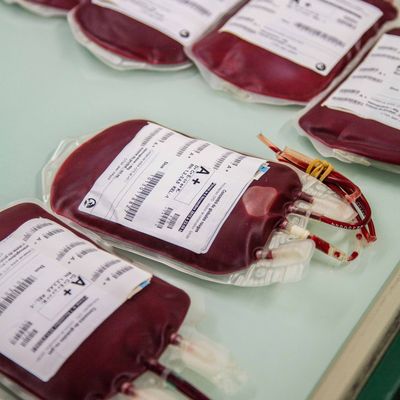
The Food and Drug Administration recommended changes to a 31-year-old ban on blood donations from men who have sex with men Tuesday, instead suggesting that potential male donors should have abstained from same-sex sex for at least 12 months before giving the gift of life. The new guidelines — like the decades-old ban — stem from the fact that gay and bisexual men are more likely to be HIV positive than the general population and therefore have a higher probability of donating infected blood. But all blood is screened for the virus after donation, and today’s tests detect the virus less than two weeks after infection — leaving many gay men and advocacy groups confused about the new proposal.
For many, a 12-month abstinence period seems like a lifetime ban, and the policy seems to target individuals based on their identities rather than on the behaviors they engage in.
The Gay Men’s Health Crisis — which doesn’t only serve gay men, but was founded first as a response to the AIDS epidemic ravaging the gay community — called the new guidelines “harmful”: “By implementing this policy, the FDA will continue to fan the flames of the outdated stereotype that HIV is only a ‘gay disease.’”
One of those weighing in was longtime AIDS activist Gregg Gonsalves:
Alongside other writers and activists:
Journalist and New York contributing editor Jesse Green, who has been writing about HIV/AIDS issues since the 1980s, finds the new guidelines offensive:
The FDA’s new policy is being hailed as an advance but it’s not much of one. In fact, in some ways, its baby-step timidity makes it worse than no change at all. What we’re supposed to be cheering is a policy that no longer excludes all gay men from donating blood but only those gay men who have sex more than once a year. Which is to say, almost all of them. For anyone who is not basically celibate, that amounts to the same lifetime ban as has applied since 1983. Then as now, science is not the issue; the blood of HIV-negative gay men who are in monogamous relationships, or of those who practice only safe sex, is as safe to transfuse as any nun’s, even if they have sex 365 days a year. So why would an agency in desperate need of donors reject it? What’s really going on is the same gay-sex phobia and cultural stereotyping that informed the original decision, only now without AIDS hysteria to excuse it. Basically, the FDA does not trust gay men to report their HIV-status and sexual activity honestly, even though they trust everyone else to do so. That’s an advance? I preferred it when they thought we were just sick, not liars.
Gay advocacy group Lambda Legal’s HIV project head, Scott Schoettes, questioned the science behind the ban:
This is a step in the right direction, but blood donation policy should be based on current scientific knowledge and experience, not unfounded fear, generalizations and stereotypes. Merely changing the parameters of this outdated policy does not alter its underlying discriminatory nature, eliminate its negative and stigmatizing effects, nor transform it into a policy based on current scientific and medical knowledge.
Within 45 days of exposure, currently required blood donation testing detects all known serious blood-borne pathogens, including HIV. Therefore, a deferral of more than two months—for anyone—is not necessary and does not noticeably enhance the safety of the blood supply. Furthermore, donor deferrals should be based entirely on the conduct of the potential donor and not on sexual orientation, gender identity or the perceived health status or risk factors of the donor’s sexual partners.
The ACLU’s Ian Thompson also condemned the ban:
The FDA’s proposal must be seen as part of an ongoing process and not an end point. The reality for most gay and bisexual men – including those in committed, monogamous relationships – is that this proposal will continue to function as a de facto lifetime ban. Criteria for determining blood donor eligibility should be based on science, not outdated, discriminatory stereotypes and assumptions.
And Slate’s Mark Joseph Stern pointed out that the FDA’s suggestion is behind the times, even among its peers:
[A]s we’ve learned over the last 31 years, there’s very little reason behind the FDA’s gay-related policies. The American Red Cross, America’s Blood Centers, the American Association of Blood Banks, and the American Medical Association have all moved on and now support scrapping the ban altogether. But the FDA remains trapped in the 1980s—terrified of gay men and their diseased, untrustworthy ways. Perhaps in another 31 years, we’ll see the FDA move to a sensible, nondiscriminatory rule. For now, we’re stuck with this embarrassing, unscientific half-measure.





























